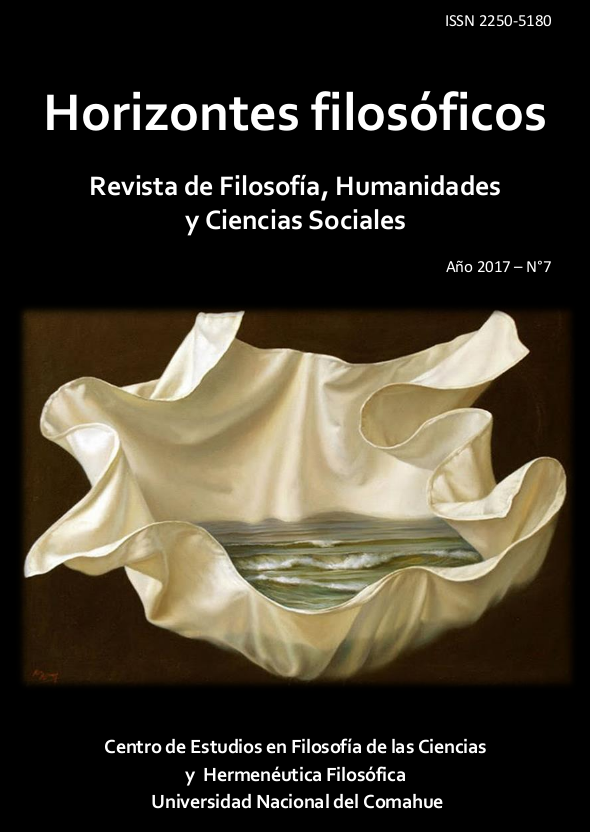Trascorporality and metacorporality. Dawn of a microethics from intimacy
Keywords:
corporality, intimacy, utility, evi, joyAbstract
The words Transcorporality and Metacorporality are used to indicate the objects or persons with whom there ir an emotionaly relevant relation the former or from whom there is gain of pleasure or joy. The consideration of these two forms of relations through the body is due to the theory of corporality from several modern philosophies as well as
the intimacy that these relations suppose. The former is a relation in which the fate of the other is personaly important and is similar to the concept of empathy. The second is a specific interpretation of utility. None of these relations is ethically irrelevant. From the second is concluded one posible concept of evil, while from the first one a principle
of compassion.
Downloads
References
FOUCAULT, M. Heterutopías, Versión electrónica.
SPINOZA, B. (1993) Ética, México, UNAM.
KUNDERA, M. (2013) La Inmortalidad, México, Tusquets.
SCHOPENHAUER, A. (2003) El Mundo como Voluntad y Representación, Barcelona, FCE.
ROUSSEAU, J.J. (2000) Emilio, Madrid, Edaf.
ŽIŽEK, S. (1999) El Acoso de las Fantasías, México, Siglo XXI.
HAMELIN, O. (1987) Le Système de Descartes, New York, Garland.
PAVESI, P. (2004) El Amor Voluntario, Buenos Aires, Universidad Nacional de Buenos Aires.
ORTEGA Y GASSET, J. (2010) Cuerpo vivido, Madrid, Encuentro.
DUBOS, L. (1733) Reflexions Critiques sur la Poésie et sur la Peinture, París, P.J. Mariette.
BATTEUX, C. (1746) Les Beaux Arts réduits à un même Principe, París, Durand.
TODOROV, Z. (1997) Facing the Extreme, New York, Macmillan.
Published
How to Cite
Issue
Section
License
Atribución-NoComercial-SinDerivadas 2.5 Argentina (CC BY-NC-ND 2.5 AR)
Usted es libre de:
Compartir — copiar y redistribuir el material en cualquier medio o formato
La licenciante no puede revocar estas libertades en tanto usted siga los términos de la licencia





